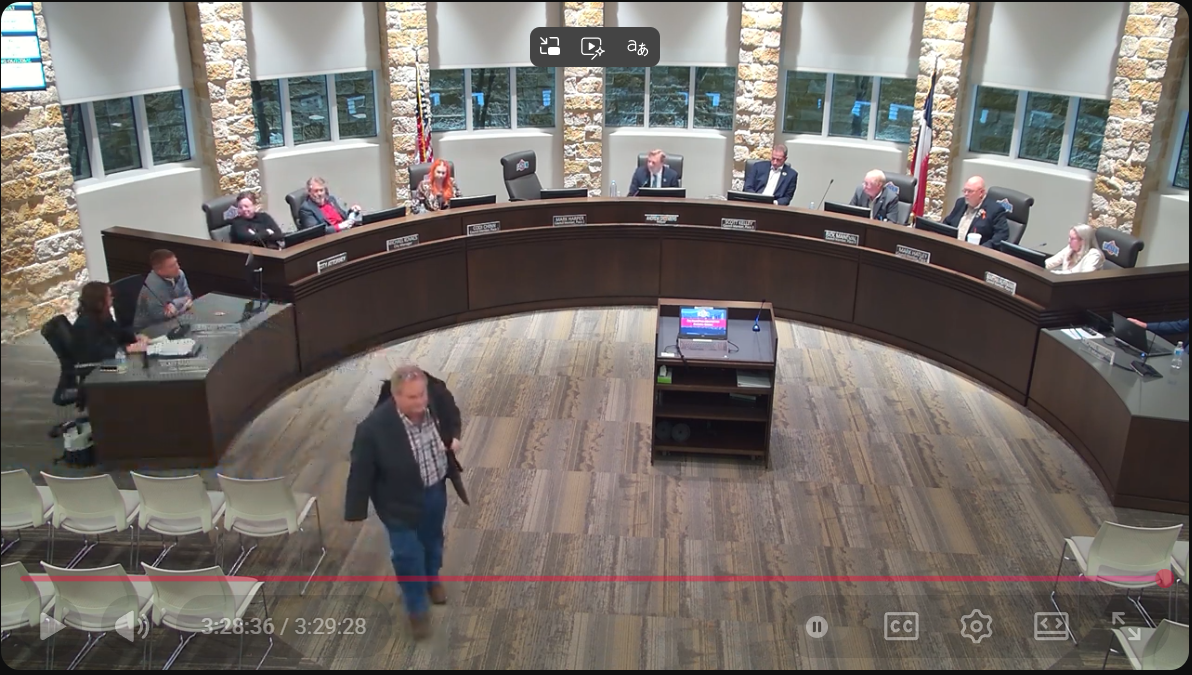Guerra vs. Guerra: The Battle for Texas House District 41
In the politically vibrant Texas House District 41, the stage is set for a fierce electoral contest between incumbent Democrat Robert “Bobby” Guerra and Republican challenger Dr. John “Doc” Guerra. This marks the third time Doc Guerra has faced off against Bobby Guerra, with both candidates striving to secure the support of a district historically dominated by Democrats.
Robert “Bobby” Guerra, a seasoned attorney and veteran politician, has been a fixture in District 41 since his first election victory in 2012. Born in Edinburg, Texas, Bobby hails from a lineage of South Texas ranchers dating back to the 1700s. His career path saw him earn a B.S. in Biology and Chemistry from Pan American University, followed by a stint as a television reporter and news anchor. Transitioning to law, Bobby graduated cum laude from Texas Southern University Law School in 1985. His legal prowess earned him recognition as a Texas Super Lawyer from 2006 to 2011, and he now serves as managing partner at Guerra & Sabo, P.L.L.C.
Bobby Guerra’s legislative tenure is marked by his service on the House Committees on Energy Resources, Environmental Regulation, and Resolutions Calendars. His deep-rooted connections to the district and extensive experience in both law and politics have solidified his standing as a trusted representative of the community. His campaign emphasizes continuity, stability, and a dedication to advocating for the interests of his constituents.
In stark contrast, Dr. John “Doc” Guerra brings a medical background to the political arena. Born and raised in the Rio Grande Valley, Doc Guerra has dedicated over 30 years to improving women’s health as an OB/GYN. His campaign mantra underscores his identity as a physician, not a politician, pledging to infuse conservative values into the Texas legislature. Despite two previous unsuccessful bids against Bobby Guerra, Doc remains resolute in his pursuit, banking on the adage that the third time’s the charm.
The district encompasses the cities of McAllen, Mission, Edinburg, Palmhurst, Palmview, Alton, and Pharr, areas that have long been Democratic strongholds. In the 2022 election, Bobby Guerra secured 22,325 votes to Doc’s 16,883, a noticeable margin but one that demonstrates significant support for the Republican challenger. The 2020 results showed a similar split, with Bobby garnering 32,097 votes against Doc’s 23,366.
The race has drawn attention for the stark ideological divide between the candidates. Bobby Guerra’s campaign highlights his extensive legal and legislative experience, emphasizing his work on key House Committees and his long-standing service to the community. In contrast, Doc Guerra’s platform focuses on his medical background and a commitment to conservative values, seeking to resonate with voters desiring a shift from the established political order.
Doc Guerra’s persistence reflects a growing desire among some constituents for change. His campaign focuses on community-oriented governance and conservative principles, aiming to address issues he believes have been neglected under Democratic leadership. On the other hand, Bobby Guerra’s long-standing service and deep community ties provide a formidable defense, promising experienced leadership and continued advocacy for his district’s needs.
As the general election approaches in November, both candidates are ramping up their campaigns. The voters of District 41 face a critical decision: to continue with the experienced leadership of Bobby Guerra or to embrace the change proposed by Doc Guerra. This high-stakes contest not only highlights the political dynamics of South Texas but also underscores the broader ideological battles playing out across the state.
For the residents of District 41, the outcome of this election will determine the future direction of their representation in the Texas legislature. Bobby Guerra’s established presence offers stability and continued advocacy for Democratic policies, while Doc Guerra’s persistent candidacy underscores a push for new leadership and conservative reforms.
As the electoral clock ticks down, the eyes of South Texas and beyond will be keenly watching this pivotal race. Will Doc Guerra’s third attempt break the Democratic stronghold, or will Bobby Guerra’s deep roots and political acumen secure yet another term? The answer lies in the hands of the voters of District 41.

Election
New Poll Shows Crockett, Paxton Leading Texas Senate Primary Contests

Texas Senate Primaries Show Early Leads for Crockett and Paxton
AUSTIN, Texas – A new poll released by The Texas Tribune indicates that Jasmine Crockett and Ken Paxton are leading their respective primary races for the U.S. Senate seat in Texas. The survey, published on February 9, 2026, highlights the early momentum for both candidates as they vie for their party nominations in a closely watched election cycle. The results point to strong voter recognition and support for Crockett in the Democratic primary and Paxton in the Republican primary.
The poll, conducted among likely primary voters across the state, shows Crockett holding a significant lead over her Democratic challenger James Talarico, while Paxton maintains a commanding position among Republican contenders John Cornyn & Wesley Hunt.
According to the poll, Ken Paxton leads with 38 percent of likely GOP primary voters, pulling ahead of incumbent John Cornyn, who trails at 31 percent, while Wesley Hunt remains a distant third at 17 percent. The survey indicates Paxton would hold a commanding advantage in a runoff scenario and currently outperforms Cornyn across nearly every key Republican demographic group, with Latino voters the lone exception, where Cornyn maintains a seven-point edge.
Among Democrats, the poll shows Jasmine Crockett opening a notable lead, capturing 47 percent of likely primary voters compared to 39 percent for James Talarico—a meaningful shift from earlier polling that had Talarico in the lead. While still early, the numbers suggest momentum is consolidating ahead of primaries that will determine the general election matchups.
Jasmine Crockett, a sitting U.S. Representative whose district lines were redrawn out from under her, has responded to political extinction with a desperate lurch toward the U.S. Senate. Her campaign, widely criticized as race-baiting and grievance-driven, has leaned heavily on inflaming urban Democratic turnout while cloaking thin policy substance in fashionable slogans about healthcare and “equity.”
By contrast, Ken Paxton enters the race with a long, battle-tested record as Texas Attorney General, earning fierce loyalty from conservatives for his aggressive defense of state sovereignty, constitutional limits, and successful legal challenges to federal overreach. Though relentlessly targeted by opponents, Paxton’s tenure reflects durability, clarity of purpose, and an unapologetic alignment with the voters he represents—qualities that define his standing in the contest.
The Texas U.S. Senate race draws national attention, as the state remains a critical battleground in determining the balance of power in Congress. With incumbent dynamics and shifting voter demographics at play, the primary outcomes will set the stage for a potentially contentious general election. The Texas Tribune poll serves as an initial benchmark, though voter sentiment could evolve as campaigns intensify and debates unfold in the coming weeks.
Council
Fate City Council Votes to Release Secret Recordings

Councilman Mark Harper walks out of meeting before adjournment.
FATE, TX – The Fate City Council voted late Monday night to waive deliberative privilege, opening the door to the public release of secret audio recordings that may have driven a recall election against Councilwoman Codi Chinn. The decision came after hours of public criticism, procedural friction, and a lengthy executive session with legal counsel.
The meeting, held Monday, February 2, was streamed live by the city and is available on YouTube at: https://www.youtube.com/live/zQVN0i-d8C0 (Embedded Below)
(Source: City of Fate, official meeting broadcast)
Timeline for Readers
- 00:33:52 – Public comments begin, largely focused on the recall election of Councilwoman Codi Chinn.
- 00:56:10 – Councilman Harper interrupts public Comment.
- 00:57:00 – Councilman Harper interrupts public Comment.
- 00:58:00 – Councilman Harper interrupts public Comment.
- 02:21:00 – Executive Session – Council enters closed session to consult with legal counsel.
- 03:22:52 – Council reconvenes in open session.
- Primary motion – Council votes to “waive deliberative privilege”, allowing release of disputed audio recordings.
Public Comment and Visible Strain
Public comments began just after the 33 minute mark and quickly centered on the recall election. Speaker after speaker questioned the conduct of city officials and demanded transparency regarding audio recordings that have circulated privately but remained unavailable to the public.
During one speaker’s remarks, critical of Councilwoman Chinn, procedural tension became visible. Three separate times, Councilman Mark Harper interrupted to remind Mayor Andrew Greenberg that the speaker had exceeded the three-minute time limit. Each time, Mayor Greenberg thanked Harper for the reminder, then directed the speaker to continue.
The exchange stood out. While council rules clearly limit speakers to three minutes, the mayor’s repeated decision to allow the speaker to proceed suggested an effort to avoid the appearance of silencing criticism during a highly charged meeting.
Clarifying the Recordings
Contrary to some early assumptions, the audio recordings at issue were not recordings of executive sessions. Instead, they are one-party consent recordings, the existence of which has been previously reported and alluded to on Pipkins Reports. Their precise origin has not been publicly detailed, but their contents have been referenced repeatedly by both supporters and critics of the recall effort.
Behind Closed Doors
Following the public meeting, the council entered executive session to consult with legal counsel. After about an hour, members returned to open session at approximately 3:22:52 .
The primary motion coming out of that session was to “waive deliberative privilege“. The effect of the vote was to remove a legal obstacle to releasing the secret audio recordings that have been at the center of the controversy.
No excerpts were played, and no conclusions were announced. The council did not rule on the legality of the recordings, nor did it weigh in on the merits of the recall election itself.
Why the Vote Matters
The decision does not resolve the recall of Councilwoman Chinn. It does not validate or refute claims made by either side. What it does is shift the debate away from rumor and secondhand accounts.
According to guidance from the Texas Municipal League, governing bodies may waive certain privileges when transparency is deemed to serve the public interest, particularly when litigation risk is balanced against public trust (Texas Municipal League, Open Meetings Act resources).
Opinion and Perspective
The council’s action was a necessary step. Secret recordings, selectively referenced and strategically leaked, undermine confidence in local government. So does a refusal to confront them directly.
Transparency is not about protecting officials from embarrassment. It is NOT the job of the council to assist the city in concealing information that may be used against it in legal proceedings when the City Manager, or Councilmen, may have done bad things. It is about protecting citizens from manipulation. If the recordings exonerate those involved, their release will restore credibility. If they raise concerns, voters deserve to hear them unfiltered before making decisions in a recall election.
Monday night in Fate did not end the controversy. It ended the excuse for keeping the public in the dark.
Election
Bob Hall Faces Old Allegations as Supporters of His Opponent Stir Controversy in Rockwall

ROCKWALL, TX — Texas State Sen. Bob Hall appeared before voters at Rockwall County’s Final Friday Night Forum, on Friday. The appearance renewed online criticism from supporters of his primary challenger which brought attention back to a decades-old allegation from a former marriage and also to social-media comments allegidily attributed to Hall’s wife.
The renewed discussion did not stem from new legal filings, court actions, or investigative reporting. Instead, it followed social-media posts by individuals publicly supporting Hall’s opponent, Jason Eddington, including Fate City Councilwoman Codi Chinn, whose sharply worded statements have drawn attention for both their substance and tone.
The Forum and the Race
The forum was hosted by Blue Ribbon News in partnership with the Rockwall County Republican Party, and held at the Rockwall County Courthouse. It marked the final event in a series intended to give Republican voters an opportunity to hear directly from candidates ahead of the March primary.
Other candidates in attendance included:
- Rockwall County Judge
- Frank New
- Scott Muckensturm
- County Commissioner, Precinct 4
- John Stacy
- James Branch
- Lorne Megyesi
- Justice of the Peace, Precinct 2
- Victor Carrillo
- Chris Florance
Pipkins Reports could find no official transcript or video of the forum. According to available coverage, the event proceeded without public discussion of personal controversies, and no candidate addressed the matter from the stage.
Background on the Allegations
The most damaging allegations currently being recirculated date back to divorce proceedings in Florida in the early 1990s, during which Hall’s former wife, Jane Hall, made claims in court filings alleging physical, verbal, and sexual abuse during their marriage.
The allegations, raised during a contested divorce, as they often do. Bob Hall has denied the allegations. No criminal charges were filed. No court ruled against Hall or issued a finding of abuse. The filings did not result in convictions, injunctions, or adverse judgments.
The allegations became publicly discussed during Hall’s first Senate campaign in 2014 and have resurfaced intermittently during contested elections. Their latest reappearance coincides with the current Republican primary and has been driven by individuals openly advocating for Hall’s opponent.
Explicit Attribution and Political Context
Following the January 30 forum, Fate City Councilwoman Codi Chinn, who has publicly endorsed Jason Eddington, posted a statement on social media criticizing Hall and urging Republican voters to support Eddington.
In her post, Chinn wrote:
“Senator Bob Hall I expect you will be making a statement issuing an apology on behalf of your wife for body shaming a woman simply because you don’t ideologically agree with her. These comments are shameful and your silence is deafening. Being Republican shouldn’t mean being small minded. I hope Republican Primary voters will pick the true Conservative Jason Eddington, Candidate for Texas Senate, District 2!”
Critics of Chinn, including some local Republican activists, say the post reflects what they describe as a pattern of caustic and confrontational rhetoric directed at individuals she opposes politically. It’s ironic that Chinn requests accountability for language of others, while she herself asks for forgiveness of her digressions in her bid to not be recalled. Supporters of Chinn, by contrast, characterize her comments as blunt advocacy and a willingness to publicly challenge those with whom she disagrees.
Amplification by a Political Social Media Page
On January 31 at 10:57 p.m., the Facebook page Rockwall County News First published a post calling on the Rockwall County Republican Party to condemn comments attributed to Hall’s wife. The page credited Codi Crimson Chinn as the source of screenshots included in the post.
The post stated:
“We hope that Rockwall County Republican Party will join us in condemning Senator Bob Hall’s wife in her comments.”
The screenshots included in the post purport to show comments written by Kay Hall, Senator Hall’s wife. The screenshots have not been independently authenticated by this publication. According to the screenshots, the comments attributed to Kay Hall read:
“Oh, yes, so disgusting to see Jill get up an speak. She and all of the TFRW little people are in their element. Wish I had recorded her speech, or even more wish I had stood up in the room to tell everyone how she got the Democrats to vote for her in the election. The pictures are very flattering to her because she has gained weight and really looked aged. I am sitting across from Bob near the podium. too, close!!!”
As of publication, neither Senator Hall nor his wife has publicly confirmed the authenticity of the screenshots or issued a statement regarding the comments.
Hall’s Position and Current Status
Hall has not publicly addressed the social-media posts and did not respond to our request for comment. He has previously stated, during earlier campaigns, that efforts to revive allegations from his former marriage are politically motivated and unrelated to any legal findings or his conduct in office.
Hall is currently married to Sarah Kay Smith Hall, with whom he has three children. There are no legal actions or criminal allegations involving his current marriage. The current controversy centers on online posts circulated by political opponents and their supporters.
Conclusion
The Final Friday Night Forum was intended to focus voter attention on policy differences among Republican candidates. In the days following the event, however, the race shifted toward personal disputes fueled by online posts from supporters of Hall’s challenger, including commentary that some observers describe as emblematic of an increasingly sharp-edged political style.
As the March primary approaches, voters in Senate District 2 must weigh not only policy and legislative records, but also the motivations and methods used by campaigns and their advocates. Whether the renewed criticism is viewed as relevant scrutiny or as opposition-driven escalation remains a question for the electorate to decide.
You must be logged in to post a comment Login